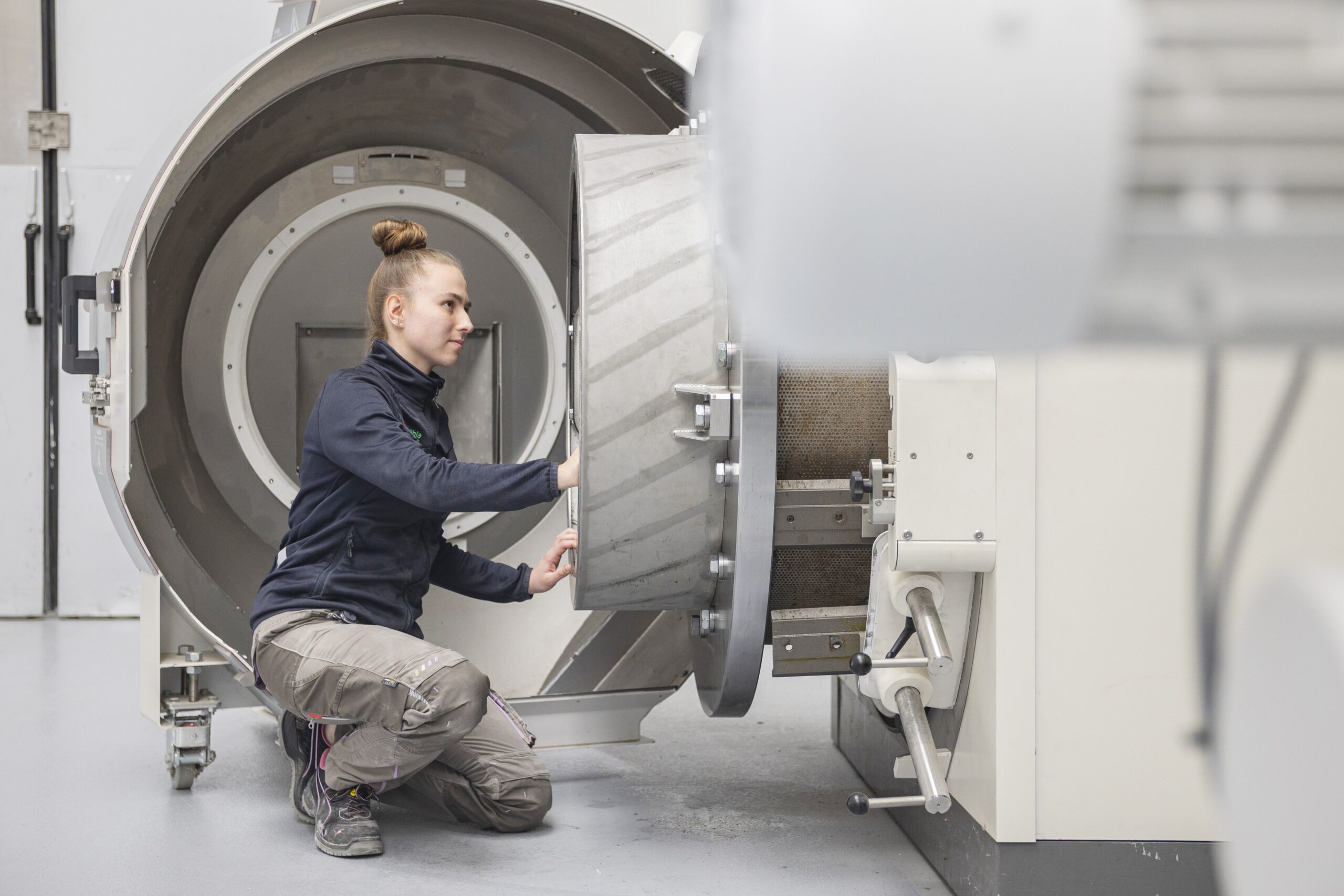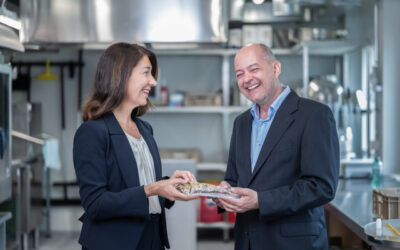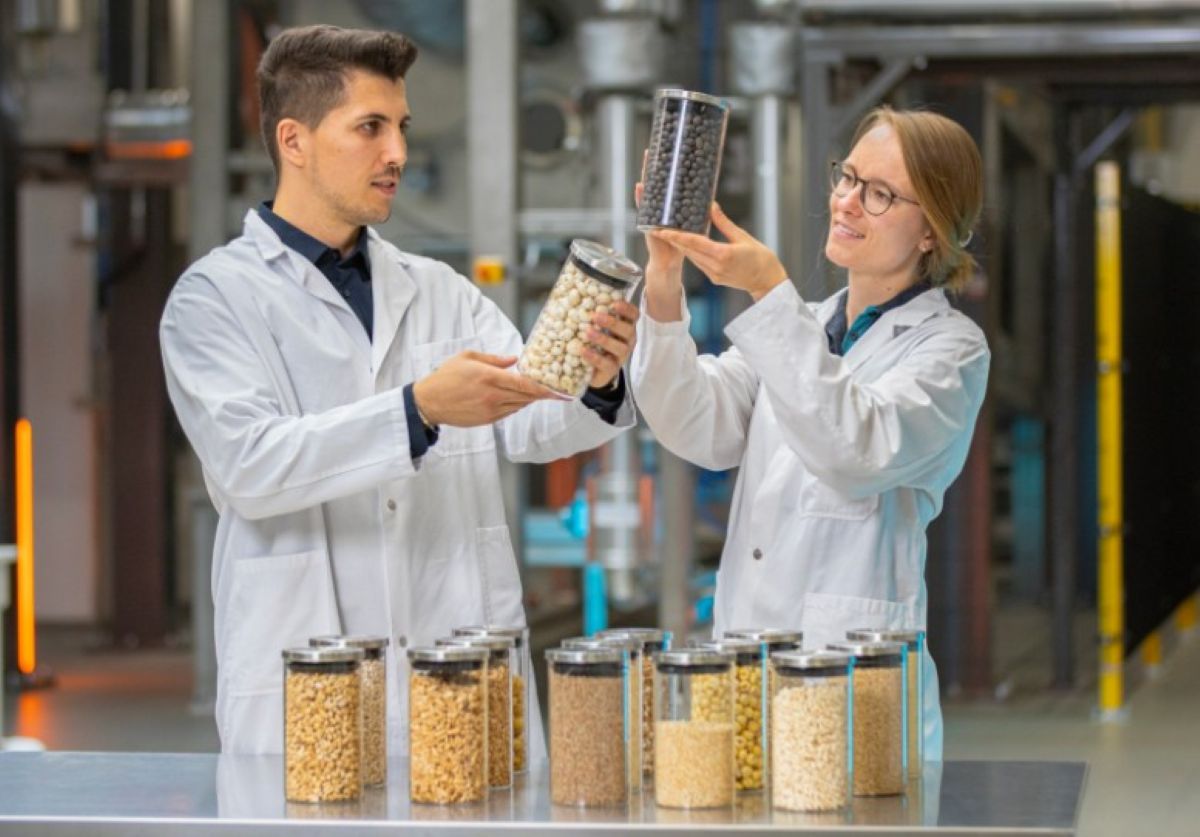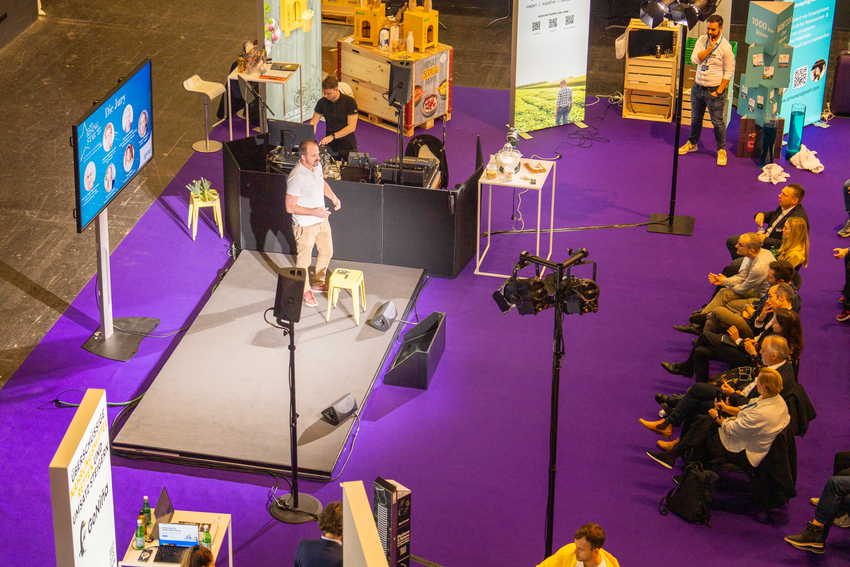Valley partner Yumame Foods and the...
Bühler launches state-of-the-art Milling Academy
Bühler launches state-of-the-art Milling Academy

Valley partner Bühler has opened a new, state-of-the-art Milling Academy – a 1,800-square-meter training center for food and feed millers – at the heart of its headquarters in Switzerland. Designed to meet the evolving needs of the industry, the facility combines decades of expertise with the latest technology and modern teaching methods. Direct access to research and training centers enables course participants to gain unique hands-on insight into key industry areas.
The milling industry plays a vital role in global food security, but it is also navigating an era of significant change and challenge. In addition to ever-higher food safety standards and the need for efficiency and sustainability, millers are facing increasing pressures from climate change, a shrinking skilled workforce, and supply chain volatility.
Against this backdrop, technology and digital solutions are emerging as powerful tools to boost yield, profitability, and resilience. However, realizing the full potential of these advancements depends on a well-trained workforce. This makes advanced, hands-on training programs for millers more important than ever before.
“With the opening of our new, state-of-the-art Milling Academy, we are empowering the next generation of milling professionals by offering advanced training, hands-on experience, and access to the latest technologies,” says Stefan Birrer, Head of Business Area Milling Solutions at Bühler Group. “This ensures customers can meet evolving industry demands and drive continuous improvement throughout the food and feed sectors.”
The Milling Academy is the place where industry professionals can deepen their knowledge, expand their network, and drive innovation for a more efficient and sustainable food value chain. The facility provides participants with direct access to Bühler’s Grain Innovation Center, multiple research and training centers, and the CUBIC innovation campus. Participants gain practical experience across every aspect of the milling process, from raw material intake to final packaging.
Meeting rising training demands
Purpose-built with a strong focus on educational methodology, the Milling Academy is developed to optimize learning outcomes. “The construction of the Milling Academy gave us the opportunity to design and implement everything exactly the way it makes the most sense for our customer training programs. We also took the opportunity to create many more ways for interactive learning directly at the machines,” says Dario Grossmann, Head of the Milling Academy. “Participants tell us that with the Milling Academy, we’ve reached an entirely new level of quality. We are seeing increasing interest in training from our customers and are more than ready to meet this growing demand by continuing to provide the best training for millers in the future.”
Featuring three modern classrooms, various break-out spaces for self-learning and group work, and an arena located directly in the machine park, the facility offers a range of teaching environments. A welcoming coffee area fosters networking between participants from different courses and encourages knowledge exchange. Practical, hands-on training takes place on both the latest milling machines and older models, ensuring participants receive instruction tailored to the equipment they use in their own plants.
The Milling Academy also integrates advanced digital learning tools and features two laboratories: one for analytical training and another for electronics training and experimentation. It includes a fully automated school mill, which processes 24 tonnes per day, allowing for industrial-scale training. It also houses the School of Feed Technology (SFT), significantly expanding resources for both food and feed milling professionals.
The Milling Academy, alongside the School of Feed Technology, offers over 100 courses a year to over 750 trainees in seven languages. The courses are structured in a modular way and are tailored to the needs of machine operators, head millers, plant managers but also include trainings for executives, laboratory workforce, and electrical and mechanical maintenance engineers. On top of that, customized trainings in Uzwil or directly at customer sites around the world are conducted by Bühler’s Milling Academy personnel.
Bühler’s global learning ecosystem
The Milling Academy also runs specialized programs in partnership with Kansas State University in the US, and at Bühler’s training mill in Wuxi and feed mill in Changzhou, China. Bühler’s African Milling School, located in Nairobi, Kenya has also served millers from across Africa and the Middle East since 2015.
Participants in Uzwil have direct access to the Grain Innovation Center (GIC), where they can test the machines with material and gain insights into the development and testing of advanced grain processing technologies. The GIC is closely connected to Bühler’s network of research and training centers including the Grain Processing Innovation Center in Kano (GPIC), Nigeria, which is dedicated to exploring the industrial potential of local and ancient grains and offers training programs. Bühler’s education and innovation efforts are supported by other research and training centers that serve multiple industrial applications for food and feed, as well as specialist facilities such as the Cocoa Competence Center in Côte d’Ivoire and the International Rice Milling Academy in India.
This global network is further strengthened through partnerships with leading academic institutes and research organizations, for example the ETH Zürich in Switzerland, DIL in Germany, and the North Carolina Food Innovation Lab (NCFIL) in the US, to name a few. By connecting scientific research with industrial practice, these partnerships support market-driven innovation in areas such as sustainable proteins, digitalization, and next-generation food production. In Singapore, Bühler and Givaudan co-run the Protein Innovation Centre, where new plant-based products are developed and scaled.
“We continuously invest in strengthening our global education network to equip the next generation of millers with the skills they need to succeed. And with our extensive learning ecosystem, Bühler is shaping the future of food – building skills, advancing innovation, and helping customers to stay competitive while driving a more sustainable and resilient food system,” says Stefan Birrer.
Never miss a Swiss food innovation morsel.
Latest News
Yumame Foods and Le Patron partner for a delicious, plant-based future of food
What the food industry can learn from GDI’s Major Shifts model
The future is coming faster than many...
Meet the finalists of the Igeho Rising Star Award for 2025
Many startups applied. 15 made it to...
Nestlé and IBM leverage AI and deep tech to unlock new packaging innovations
Valley partner, Nestlé R&D has...








